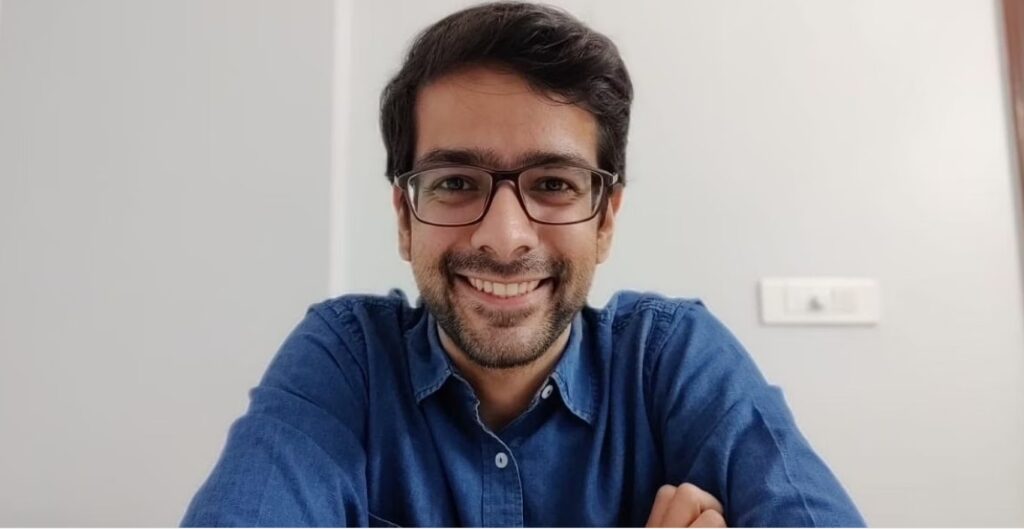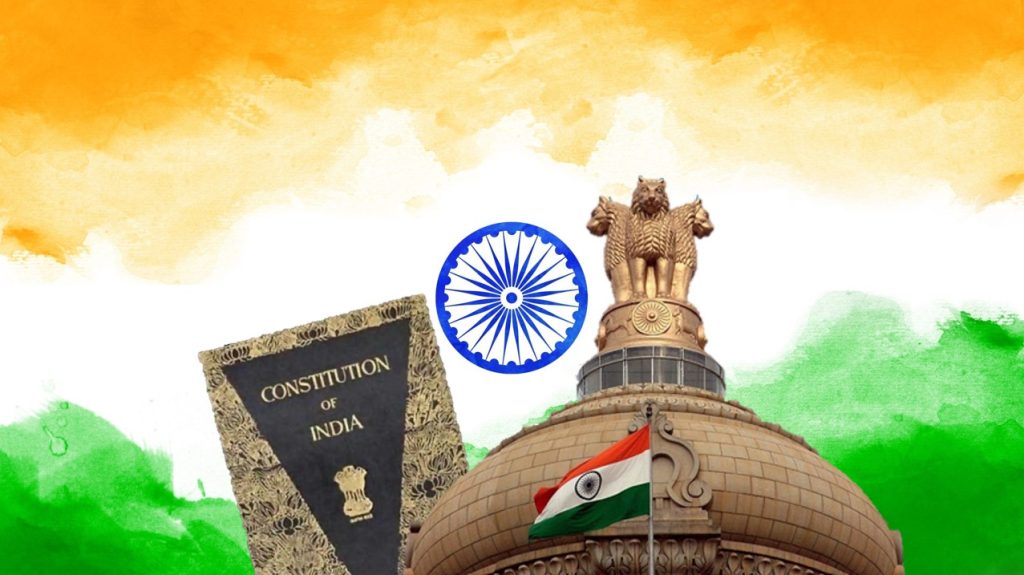UPSC CSE-2022 Mains examination is just round the corner. It will start from September 16 and will go on for 5 days – 16, 17, 18, 24 and 25 September. All serious aspirants would be now immersed deep in their preparation. However, it helps to get suggestions on writing better to score better. And if such suggestions come from people who have successfully passed the examination, even these last minute tips can come really handy to fill the gaps.
One such person is an IITian who cleared this prestigious exam twice, Abhijeet Yadav. In a Twitter thread, he gave some important Polity-related information about the 10 judgements that changed India. Although he shared these judgements in brief, candidates can easily understand the essence here and can read about them in detail on the Internet or in their Polity books.
KESAVANANDA BHARTI VS STATE OF KERALA
Mr. Yadav tweeted about the Kesavananda Bharati vs State of Kerala case, where, in a verdict divided 7–6, the court held that while the Parliament has ‘wide’ powers, it did not have the power to destroy or emasculate the basic elements or fundamental features of the Constitution.
He wrote: “Kesavananda Bharati vs State of Kerala. SC ascribed to itself the function of preserving the integrity of the Indian Constitution. The basic structure doctrine was put forward in this case and has survived to date as one of the most enduring judicial pronouncements.”
MANEKA GANDHI VS UOI
Maneka Gandhi vs Union of India case is regarded as the landmark judgment in the expansion of Article 21 and the interpretation of Fundamental Rights. Articles 14, 19 and 21 of the Indian Constitution were further strengthened after this case and gave new expansion to Article 21.
“Maneka Gandhi vs UoI. SC introduced Due Process jurisprudence. It said that post this case A21 would be read as ‘No person shall be deprived of his life or personal liberty except according to fair, just, and reasonable procedure established by valid law.’”
Before this judgment, Article 21 only protected the Right to Life and Personal Liberty against the executive branch’s arbitrary actions, not from legislative action. This case also added protection against legislative activities.
Maneka Gandhi v. UoI
— Abhijeet (@abhiwhy) August 23, 2022
SC introduced Due Process jurisprudence. It said that post this case A21 would be read as "No person shall be deprived of his life or personal liberty except according to fair, just, and reasonable procedure established by valid law."
MD AHMED KHAN VS SHAH BANO BEGUM
“Md. Ahmed Khan vs Shah Bano Begum. SC delivered a unanimous verdict that whether the spouses were Hindu, Muslim, Christian, Parsis, pagans or heathens was irrelevant, she would be entitled to maintenance from her husband under section 125 of the CrPC.”
Mohd. Ahmed Khan vs Shah Bano Begum Case is commonly known as the Shah Bano case. It was highly controversial and drew in a great amount of political scrutiny. Shah Bano case now stands as a landmark judgement that successfully empowers Muslim women with the right to maintenance beyond the period of ‘iddat’ under Section 125 of CrPC. Shah Bano case study is a prominent example of judicial activism to protect the rights of Muslim women against the tyranny of her husband.
(Overturned by later laws)
OLGA TELLIS VS BOMBAY MUNICIPAL CORPORATION
In his next tweet, Abhijeet wrote about the “Olga Tellis vs Bombay Municipal Corporation case. SC ruled in favor of the BMC provision which was the basis for eviction of the slum dwellers but also asserted that the state must provide for alternative housing for the slum dwellers. It upheld the right to livelihood under A21.”
This case started in 1981 when the State of Maharashtra and the Bombay Municipal Corporation decided that pavement and slum dwellers in Bombay city should be evicted and “deported to their respective places of origin or places outside the city of Bombay.”
UNION CARBIDE CORPORATION VS UOI
His next tweet was about the “Union Carbide Corporation v. UoI (case). This case exposed that legislation in India has always been reactive and not proactive. When the Bhopal tragedy occurred, there were no laws specifically dealing with the same. Related IPC provisions allowed a maximum imprisonment of up to 2 years.”
In 1934, Union Carbide India Ltd (UCIL) was consolidated in India. It manufactured chemicals, batteries, and pesticides. In 1970, in Bhopal, Madhya Pradesh, UCIL established a pesticide plant. On the night of 2-3 December 1984, very toxic methyl isocyanate (MIC) leaked from the plant. Although no official death count was undertaken, it is estimated that while the casualties were about 20000, the number of people who suffered unrecoverable physical damage was about 60000.
INDRA SAWHNEY V, UOI
The next case is the one when “SC said that Hindu caste system could be used to determine whether a class was backward or not. For other communities who did not believe in caste, other socio-economic factors would be taken into account to determine whether they were backward or not.”
This Indra Sawhney & Others vs Union of India case is also known as the Mandal verdict. The constitution recognized social and educational backwardness, but not economic backwardness. The court upheld separate reservation for OBC in central government jobs, but excluded the “creamy layer” (the forward section of a backward class, above a certain income) from it. It also said that at no point should the reservation exceed 50%.
SUPREME COURT AOR ASSOCIATION VS UOI
This case is based on the independence of the judiciary as the part of basic structure of the Constitution. This case is famously known as the ‘Second Judges Case’. To secure the ‘Rule of Law’ which is essential for the preservation of the democratic system and the separation of powers which is adopted in the constitution with the directive principles of ‘Separation of judiciary from the executive’.
Mr. Yadav wrote: “Supreme Court AoR Association v. UoI
1st case: collegium would now consist of 4 of the senior most judges
2nd case: Introduced the concept of a collegium of two senior most judges of the SC or the HC.
3rd case: Collegium would now consist of 4 of the senior most judges.”
VISHAKA VS STATE OF RAJASTHAN
The next case is the Vishaka vs State of Rajasthan one. “The SC set out 8 guidelines, based on the CEDAW, which would serve to protect women from sexual harassment in the workplace till the time an appropriate law was put in place to do the same.
Vishaka and Ors. vs State of Rajasthan was a 1997 Indian Supreme Court case where various women groups led by Naina Kapur and her organisation, Sakshi, filed Public Interest Litigation (PIL) against the state of Rajasthan and the central Government of India to enforce the fundamental rights of working women under Articles 14, 19 and 21 of the Constitution of India. The petition was filed after Bhanwari Devi, a social worker in Rajasthan, was brutally gang raped for stopping a child marriage.
ARUNA SHANBAUG VS UOI
In his next tweet, he briefed about the Aruna Shanbaug vs UoI case. He said, “In the Aruna Shanbaug case the SC distinguished between two forms of euthanasia, active and passive. It made a distinction between the two while allowing passive euthanasia in certain cases and maintaining that active euthanasia would be tantamount to murder.”
The petitioner in this case, Aruna Ramchandra Shanbaug, used to work as a nurse in King Edward Memorial Hospital, Parel, Mumbai. On the evening of 27 November 1973, a sweeper of the same hospital brutally raped her after securing her with a dog chain. It was believed that the supply of oxygen to the brain stopped because of strangulation by the chain and hence the brain got damaged. This incident caused permanent damage to her brain and led her into a permanent vegetative state (PVS).
Later an activist-journalist, Pinki Virani, filed a petition in the Supreme Court under Article 32 of the Constitution alleging that there is no possibility for her to revive and get better. So she should be allowed passive euthanasia and be absolved from her pain and agony.
Aruna Shanbaug v. UoI
— Abhijeet (@abhiwhy) August 23, 2022
In the Aruna Shanbaug case the SC distinguished between two forms of euthanasia, active and passive. It made a distinction between the two while allowing passive euthanasia in certain cases & maintaining that active euthanasia would be tantamount to murder.
JUSTICE PUTTASWAMY VS UOI
The last case he cited in his thread is Justice Puttaswamy vs UoI. “SC held that right to privacy is an FR. Overruled past SC judgements such as Kharak Singh, ADM Jabalpur, in the way.”
On 24 August, 2017 a 9-Judge Bench of the Supreme Court delivered a unanimous verdict in Justice K.S. Puttaswamy vs. Union of India and other connected matters, affirming that the Constitution of India guarantees to each individual a fundamental right to privacy.

(Abhijeet Yadav gave five years of his life to UPSC CSE. He made 6 attempts, which covered 4 Mains, 2 interviews, 2 selections, and got AIR 653 in CSE 2017 and R-List in CSE 2018. He is now an UPSC mentor and the founder of UPSCprep.com. An alumnus of IIT Delhi, he also has his YouTube channel with over 124,000 subscribers, where he helps aspirants to prepare better for UPSC exams.)

































